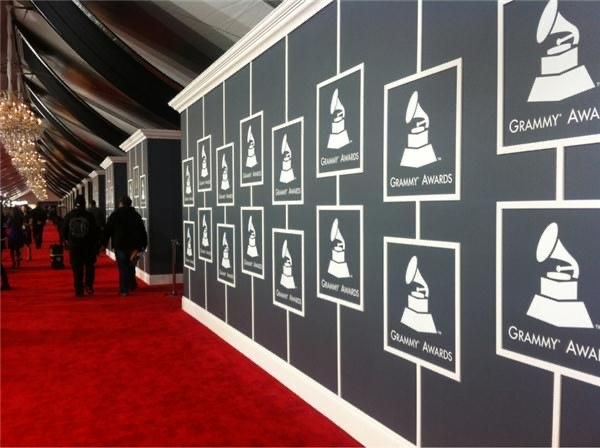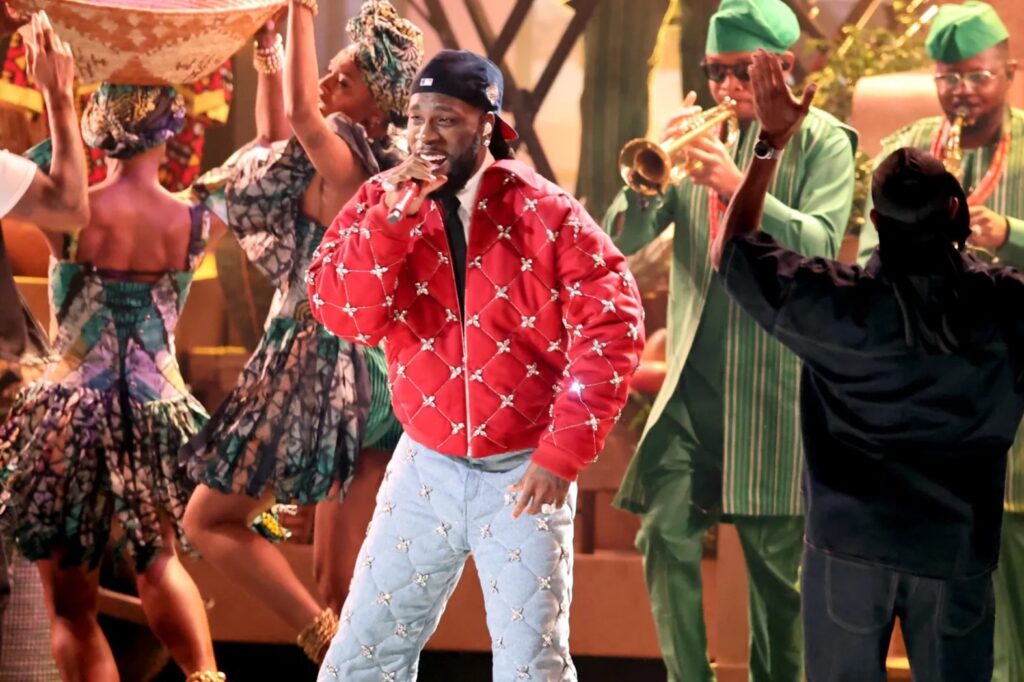Since its inception in 1958, the Grammy Awards, affectionately known as the Grammys, have represented the pinnacle of recognition for exceptional achievement in the music industry. Organized by the Recording Academy, these awards honour not just artists but also producers, engineers, and songwriters who contribute to the rich tapestry of musical expression.
Viewed as the music industry’s counterpart to the prestigious Academy Awards for film, the Grammys cover an extensive array of genres, spanning from pop and rock to R&B, country, jazz, and classical music. With categories tailored to diverse musical styles, the Grammys celebrate the multifaceted nature of the art form, ensuring that excellence in every niche finds its deserving spotlight.
Behind the scenes, the Grammy Awards undergo a meticulous voting process, wherein members of the Recording Academy, comprised of music professionals across various domains, cast their confidential votes. This process ensures that the results are based on merit and expertise, maintaining the integrity and credibility of the awards.
The annual Grammy Awards ceremony is a highly anticipated, star-studded event for music enthusiasts worldwide. Featuring electrifying performances by industry giants and the suspenseful unveiling of award recipients, the ceremony captivates audiences and celebrates the extraordinary talent within the music community.
Throughout its illustrious history, the Grammy Awards have left an indelible mark on the music industry, catapulting emerging artists to stardom, and honouring the contributions of legendary figures. From recognizing ground breaking albums to spotlighting innovative collaborations, the Grammys mirror the continuously changing music scene, influencing trends and inspiring generations.

However, like any institution, the Grammys have encountered their share of controversies and challenges. In 2023, the introduction of the Dr. Dre Global Impact Award triggered significant backlash due to its namesake’s controversial past. Such incidents underscore the need for continual reflection and evolution within the music industry to uphold its values and integrity.
The COVID-19 pandemic also impacted the Grammy Awards, prompting the postponement of the 63rd and 64th ceremonies to ensure the safety of attendees and uphold public health protocols. Despite these hurdles, the resilience of the music community prevailed, and the Grammys continued to honour excellence amidst adversity.
At the heart of the Grammy Awards lies the iconic golden gramophone trophy, symbolizing the highest honour in music. Created with precision and skill, these trophies symbolize the pinnacle of artistic achievement, dedication, and passion that define the essence of musical excellence.
The core of the Grammy Awards lies in its extensive array of categories, each meticulously crafted to celebrate excellence in specific genres and facets of music production. Fundamentally these categories are the “General Field” awards, which transcend genre boundaries to honour the most exceptional musical endeavours. These include the coveted Album of the Year, Record of the Year, Song of the Year, and Best New Artist awards, each representing the pinnacle of artistic achievement in the industry.
Throughout the years, the Grammys have undergone significant restructuring and expansion to reflect the evolving nature of music and its myriad expressions. In 2012, a major overhaul saw the reduction of categories from 109 to 78, streamlining distinctions and merging genres to better align with the contemporary musical landscape. Categories such as Best Rock Instrumental Performance were eliminated, while others were consolidated to ensure relevance and inclusivity.
In subsequent years, further adjustments were made to accommodate emerging genres and recognize underrepresented voices within the industry. The addition of categories such as Producer of the Year, Non-Classical, and Songwriter of the Year, Non-Classical to the “General Field” in 2023 marked a significant milestone, underscoring the Grammys’ commitment to embracing innovation and diversity in music production and composition.
The selection process for Grammy nominees is thorough and transparent, involving extensive deliberation by industry experts and voting by members of the Recording Academy. Entries are meticulously reviewed to ensure eligibility and are categorized accurately before being presented to voting members for consideration. This rigorous process ensures that nominees are selected based solely on artistic merit, free from external influences such as sales figures or personal relationships.
In addition to the prestigious Grammy Awards themselves, the Recording Academy also presents certificates to individuals who contributed to a winning recording but are not eligible for a Grammy Award. These certificates, known as Participation Certificates or Winners Certificates, acknowledge the valuable contributions of these individuals to the recording process.
Beyond the awards ceremony, the Grammys also bestow special honours upon individuals who have made significant and lasting contributions to the music industry. One such honour is the Grammy Legend Award, a special award of merit given to individuals who have demonstrated ongoing influence and impact in the recording field. Recipients of this esteemed accolade, also known as the Grammy Living Legend Award at certain ceremonies, include luminaries such as Michael Jackson and Elton John.
Another notable honour is the Grammy Salute to Industry Icons Award, which celebrates individuals who have made innovative and transformative contributions to the music industry. Past recipients of this prestigious award include industry titans like Clive Davis and Berry Gordy, whose visionary leadership has helped shape the musical terrain of contemporary sounds.
The Grammy Awards have taken place in various venues throughout their storied history, reflecting the dynamic nature of the music industry and the evolving cultural landscape. Since 2000, the Crypto.com Arena in Los Angeles has been the main venue for the awards ceremony, providing a fitting backdrop for the celebration of musical excellence. Over the years, the Grammys have also been held in iconic locations such as New York City’s Madison Square Garden and Nashville’s Tennessee Theatre, highlighting the diverse and multifaceted nature of the music community.

In terms of individual achievements, certain artists have left an indelible mark on the Grammy Awards through their remarkable success and talent. Beyoncé stands as the most decorated artist in Grammy history, with an astonishing 32 Grammy Awards to her name, showcasing her unparalleled artistry and impact on the industry. Meanwhile, the band U2 holds the record for the most Grammy Awards won by a group, with an impressive tally of 22 awards, highlighting their enduring influence and musical prowess.
Despite its status as the premier music award ceremony, the Grammy Awards have not been immune to criticism and controversy. Critics have highlighted cases where commercially successful albums were preferred over critically acclaimed ones, raising questions about the integrity of the award selection process. Additionally, allegations of racial bias have surfaced, with some artists expressing frustration over perceived disparities in recognition and representation within the Grammy Awards.
The Recording Academy has responded to such criticism by emphasizing the integrity of its voting process and its commitment to recognizing excellence in music across diverse genres and backgrounds. However, ongoing discussions and scrutiny continue to influence the evolution of the Grammy Awards, ensuring that they remain a beacon of excellence and innovation in the ever-evolving music industry.

At the 2024 Grammy Awards ceremony, three new categories were introduced: Best African Music Performance, Best Alternative Jazz Album, and Best Pop Dance Recording. These additions to the categories represent a significant moment in history and are part of broader updates and changes aimed at enhancing the fairness, transparency, and accuracy of the Grammy Awards process, according to Recording Academy CEO Harvey Mason Jr.
The Grammys’ voting process involves members and record companies submitting entries, which undergo screening for eligibility and placement in categories. The Online Entry Process (OEP) Access Period took place from July 17, 2023, to August 31, 2023. First Round Voting occurred from October 11 to October 20, 2023. Finally, Final Round Voting was extended from December 14, 2023, to January 4, 2024, with the winners being announced during Music’s Biggest Night on February 4th.
The voting members of the Academy, who are actively involved in the creative and technical aspects of recording, participate in both the nominating process to determine the five finalists in each category and the final voting process to select the Grammy winners.
For more detailed information, interested individuals can explore ‘the Grammy Awards Journey,’ an interactive online resource that provides insights into the complete Grammy Awards process, from online entry and eligibility screening to peer voting and nominations.
Additionally, various winners were announced across different categories, including Record of the Year, Album of the Year, Song of the Year, Best New Artist, Producer of the Year (Non-Classical), and Songwriter of the Year (Non-Classical). Among the notable winners were Taylor Swift, Olivia Rodrigo, SZA, and Jack Antonoff.
As the music industry continues to evolve, so too do the Grammy Awards, adapting to embrace new genres, technologies, and cultural shifts. The Grammys serve not just as a celebration of musical excellence but also as a mirror reflecting the dynamic and ever-changing nature of the art form. With each ceremony, the Grammys reaffirm their commitment to honouring the past, celebrating the present, and shaping the future of music for generations to come.
Sources




